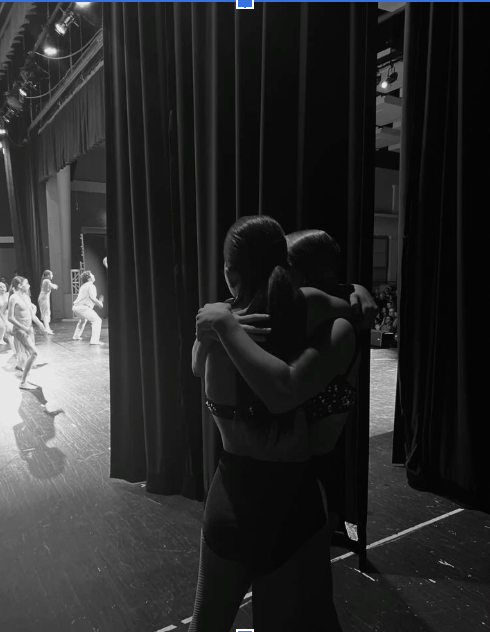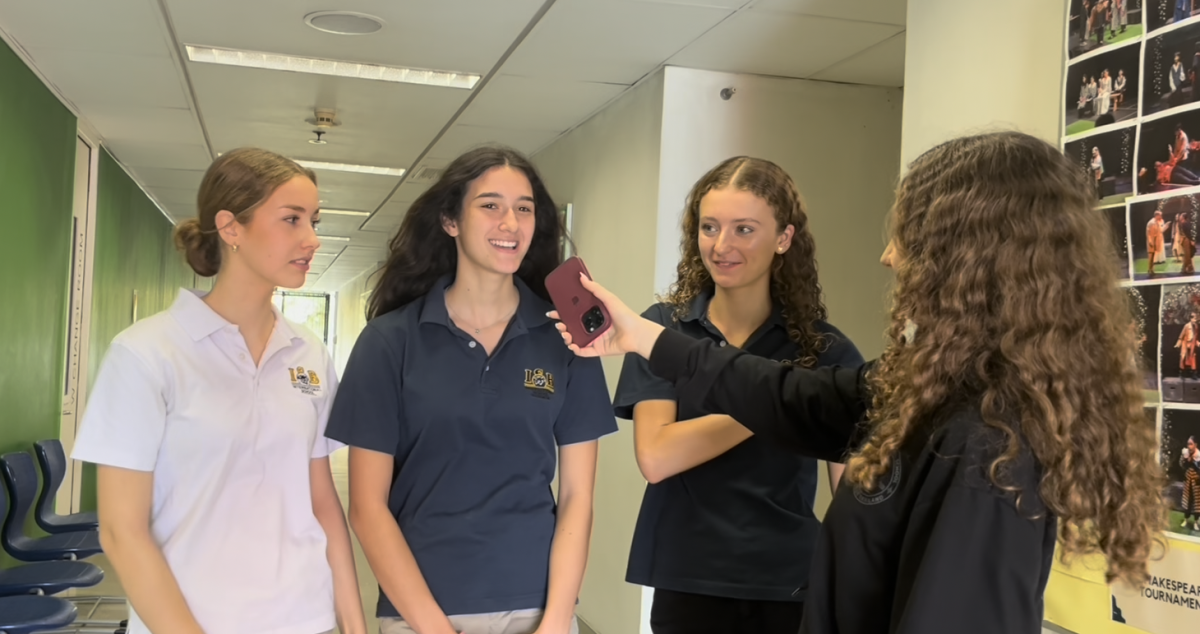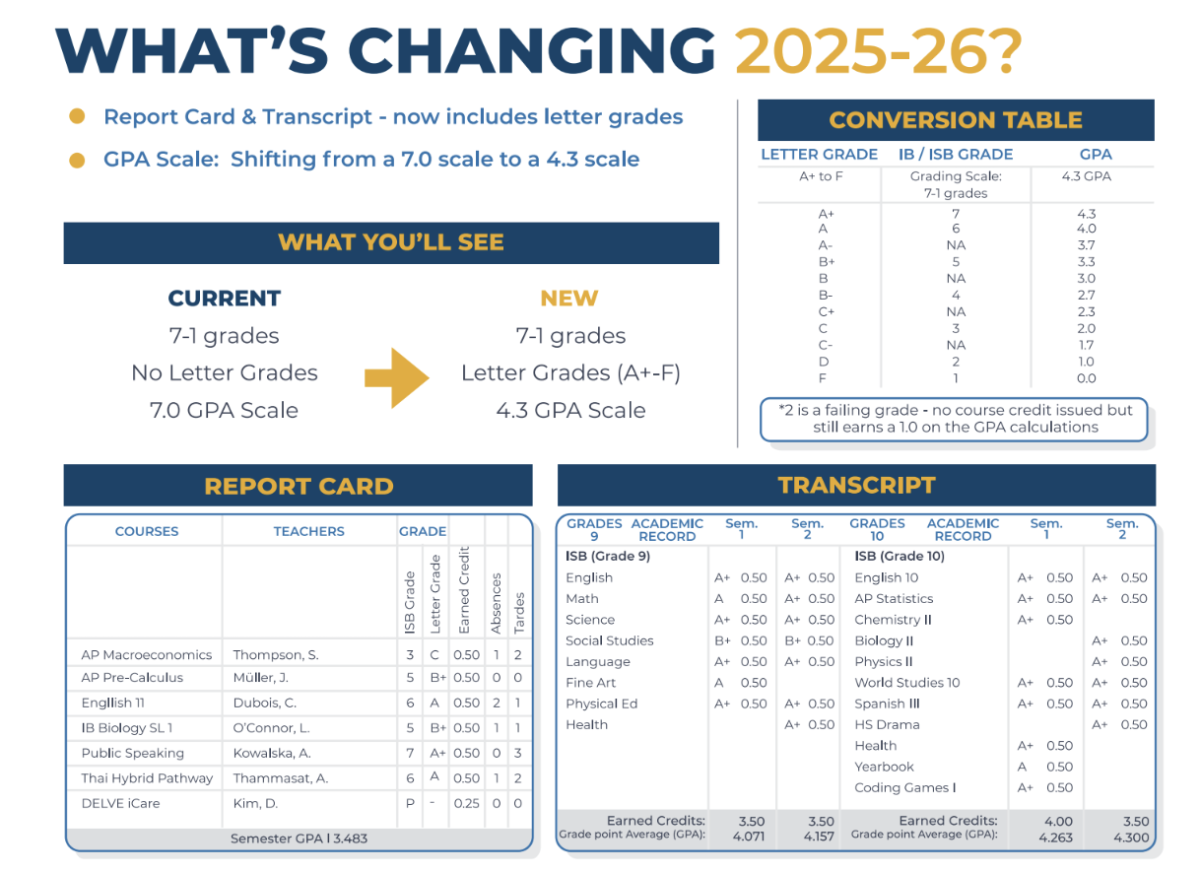You just got let out of your world language class at 1:20, but you stayed until 1:25 to ask your teacher a question. While you are on your way to your next class, you realize you are already 10 minutes late because your class is on the other side of the school. When you walk in, the teacher asks why you are late, and there you get your first tardy when you didn’t do anything wrong.
This year, the schedule has changed from a 10-minute passing period during the third and fourth blocks to a five-minute one. It has become relevant to teachers that have students with classes on the other side of the school. Students have sometimes blamed teachers for their tardies because they let them out late or need to talk with them after class. As a result, teachers have become more lenient to the students who are late and come in with legitimate excuses.
ISB Dean of Students Andy Vaughan reports that the new five-minute passing period has stirred up mixed feelings among students and teachers. “The biggest notice is kids are moving a lot faster between classes,” he says. He says the administration was worried about students being late for the last block, but that hasn’t happened. The idea of cutting the passing time came from needing to tweak the daily schedule without making after-school activities run later. “We didn’t want to push the end of the day any later,” he says. “So we went to that five-minute passing period.”
At first, it was a bit confusing. Some students thought they still had 10 minutes, so they ended up late. Mr. Vaughn says the administration was “lenient with tardies for those first couple days.” Plus, he gets that some kids travel a long way between classes, which can complicate things. Still, many students feel like five minutes is just too short to catch our breath, ask a question, or say hi to our teachers. Many students think a 10-minute break would be better, giving them time to chill and connect with their teachers before rushing to the next class.
The transition to a five-minute passing period has generated mixed feelings among grade nine students, with many expressing frustration over the time and the resulting stress.
Freshman Stella Thaxton believes it should be changed back to how it was before to give students more time to transition between classes. “I think like it’s not very useful because I tend to be late to classes or really frantic in the halls and like a time crunch, and I get really stressed out,” she says. She says that navigating the large campus has been hard, especially in five minutes. “Sometimes teachers hold you late, so I’ve been late to a lot of my last classes,” she says.
Nanya Manoleehagul, another grade 9 students, says not all teachers have been cognizant of the change. “Some teachers are understanding about the five-minute passing period and let me get by with a few minutes late, but then some teachers forget about it and hold us back until 1:25,” she says.
Teachers themselves are still getting used to the new timing, which has a knock-on effect with students.
Most grade nine students find the five-minute passing period stressful and impractical, especially when transitioning between distant classes. Many believe a longer passing period would reduce tardies and the frantic rush, making it easier to adjust to the demands of high school.
Nanya proposes moving the passing period to the second block and advisory. “I would prefer to have a five-minute passing period before advisory just because we are not going to be missing really much learning content in advisory compared to our core subjects or even our electives.” Her idea is to move the passing period so students won’t miss any learning because advisory is more of a check-in and doesn’t have as much content as a core class does.
Many students believe the five-minute passing period should be changed to 10 minutes, but it might not be possible. Nanya’s alternative solution could save some tardies. Mr.Vaughn agrees that it has caused a commotion between teachers and students and hopes we can create an easier change between the classes for next year.
















